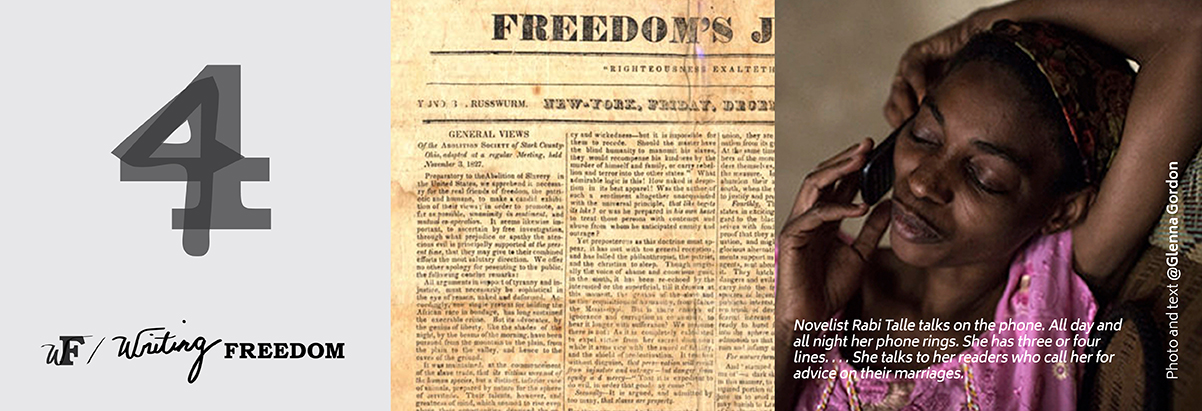
The Plan:
Walker, instead of depending on the publishing industry apparatus, used his own money earned in business for the printing, binding and self-publishing of the Appeal. The pamphlet made the Boston abolition circuit, as would be expected. But when shipments of the manifesto were confiscated as far off as Savannah, Georgia, Wilmington, North Carolina and Charleston, South Carolina, it was clear that Walker had much deeper designs.
Walker smuggled insurrection through his shop, which, remember, was near Boston’s waterfront. Many black men worked on ships at the time and Walker’s best friend happened to be a successful independent ship outfitter of whaling and fishing vessels. His friend directed seamen to Walker’s shop, where Walker sewed the Appeal into the thick lining of their gear.
Down the Atlantic seaboard the Appeal then spread. Each pamphlet placed in the hand of a bookish Negro dock-worker or read aloud to an illiterate congregation served to penetrate the slaveocracy.
The local improvisations by which the Appeal circulated were independent of Walker or any other central coordinating figure. A few boxes would be packed in with other boxes in a shopkeeper’s den, a freedman taking the long way to work, a church service that lasts ten minutes more, or lets out earlier than usual, proliferated the manifesto’s presence throughout all reaches of the South.
See full essay here
Balaraba Ramat Yakubu: The first and most subversive of the Romance novelists
Thomas Page says of Balaraba Ramat Yakubu’s traumatic childhood marriages and divorces: “But this isn’t a sad story. Instead it’s one of community and independence — from the unlikeliest source.”
Read more here
“From illiterate child bride to famous Nigerian novelist”
Femke van Zeijl: Balaraba Ramat Yakubu’s own struggle to regain control over her life and claim her voice as a woman has made her an outspoken advocate of women’s rights.
She was taken out of primary school at the age of 12 to marry a man in his 40s whom she had never met before…. One year and eight months after the wedding, [she] was finally sent back to her father’s house in disgrace.
“If you know where I came from, you’ll realise how much I have fought,” says the 57-year-old author of nine novels.
[W]hen she went out with her sewing machine, it was actually to learn how to read and write Hausa. “Only my mother knew,” Yakubu remembers. “She helped cover for me when my father asked where I was.”
At the Murtala Muhammed Foundation, … she is a programme officer coordinating trauma counselling. Over the past few years, with the rise of Boko Haram, her job has become almost entirely about supporting the victims of bomb blasts. She feels her own traumatic experiences make it easier to communicate with these casualties. “I know how it is to feel powerless and unable to speak out.”
Read more here
Interview with Yakubu:
“… whenever I write or talk, I side with women. I’m presumed to be too independent and desirous of women being at par with men. That’s what they accuse me of and is what I see as a challenge but I’m not bothered at all. All I want is for women to get their rights. That’s what my books are about and is what I stand for.”
Read more here
Yakubu’s novel Sin is a Puppy that Follows you Home, is the only Kano romance translated from Hausa into English — by an Indian publisher.

